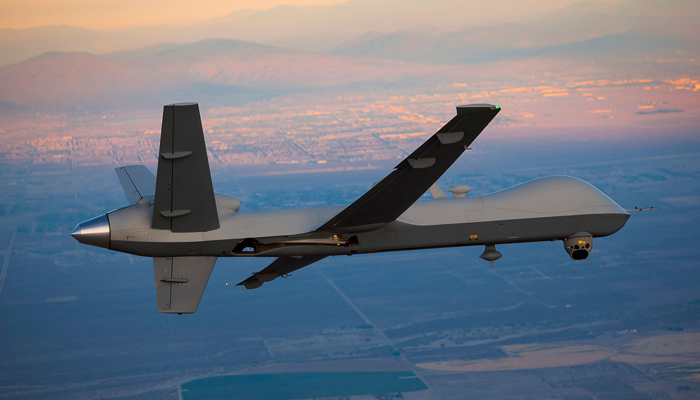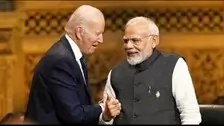Amid worries over expanding Chinese influence in the Indo-Pacific, the US State Department approved the sale of drones and missiles to India in a possible deal for around $4 billion for the South Asian country’s maritime safety and surveillance.
When the deal was first announced?
The agreement to purchase 170 Hellfire missiles and 31 Sky Guardian drones, among other weapons, was made public in 2023 at Indian Prime Minister Narendra Modi’s historic state visit to the White House.

India has overcome one obstacle with the State Department’s permission, but Congress still has to approve the agreement. It follows the significant defense agreement’s suspension by a Senate committee due to an ongoing inquiry into the possible participation of an Indian government operative in a conspiracy to kill US citizens.
The sale of 31 armed drones, missiles, and other equipment to India for around $4 billion (£3.14 billion) has been approved by the State Department. Now that Congress has given its assent, the agreement will be official.
According to the Pentagon, it includes the supply of 170 AGM-114R Hellfire missiles, 310 laser small-diameter bombs, communications and monitoring devices, and 31 armed MQ-9B SkyGuardian drones. The deal’s primary contractor will be General Atomics Aeronautical Systems.
In a statement, the State Department stated that by assisting India in advancing “political stability, peace, and economic progress in the Indo-Pacific and South Asia region,” the agreement will promote foreign policy and national security goals.
What India-US deal will include?
Along with additional communications and surveillance technology, the deal will see the supply of 31 MQ-9B SkyGuardian, 170 AGM-114R Hellfire missiles, 130 Laser Small Diameter Bombs, and 161 Embedded Global Positioning & Inertial Navigation Systems (EGIs). the Pentagon said. General Atomics Aeronautical Systems will be the principal contractor for the deal.
Why the agreement was blocked?
Congress had an “important role in the arms transfer process,” according to State Department spokesperson Matthew Miller, in response to media claims that the agreement was being blocked while murder plot investigations were ongoing.
“I don’t have any comment on when that formal notification might take place, but we routinely consult with members of Congress on the foreign affairs committees before our formal notification so we can address any questions that they might have,” he stated.

When Justin Trudeau of Canada made a public accusation that the Indian government was involved in the murder of a Canadian citizen who was Sikh, New Delhi reacted violently to what it called the “absurd” claim, causing diplomatic ties between the two nations to collapse.
Less than two months later, prosecutors have made grave claims of a similar kind about an attempted assassination attempt on Gurpatwant Singh Pannun, a Sikh separatist resident in America although one that was foiled.
India has taken a far more nuanced stance in response to the accusations, stating that it values “inputs seriously” and establishing what it claims to be a high-level inquiry committee.
The federal prosecutors in the Justice Department had accused Indian government agents of orchestrating a plot to assassinate American Sikh citizen Gurpatwant Singh Pannun, a designated terrorist in India, for advocating for the independent Sikh state of Khalistan.
The Indian government said it takes the allegations by Washington “seriously” and formed a high-level investigative committee. “This is also contrary to government policy,” the Indian foreign ministry said.
”Will support the foreign policy and national security objectives of the United States by helping to strengthen the United States-Indian strategic relationship,” the Pentagon stated on Thursday on the potential drone agreement with India”











